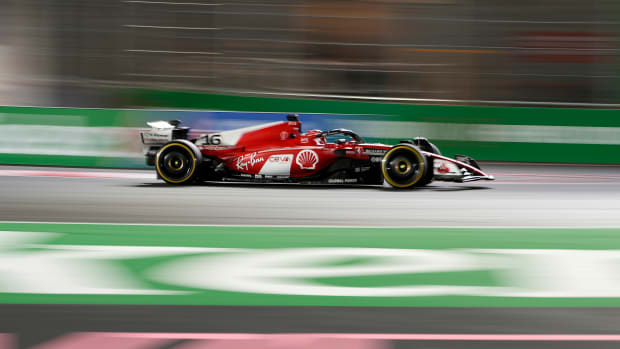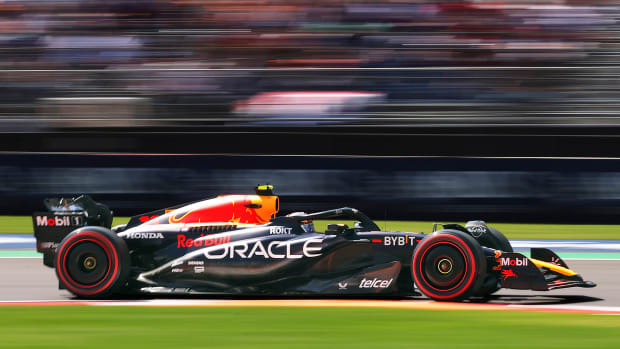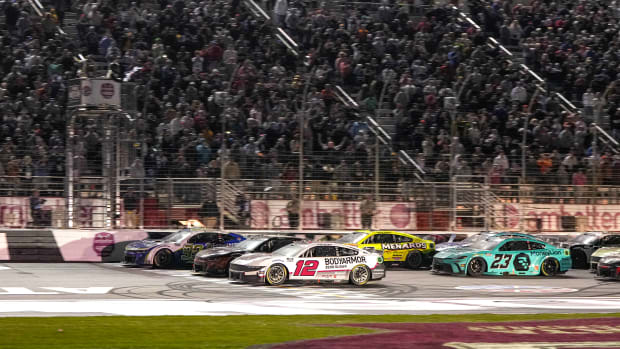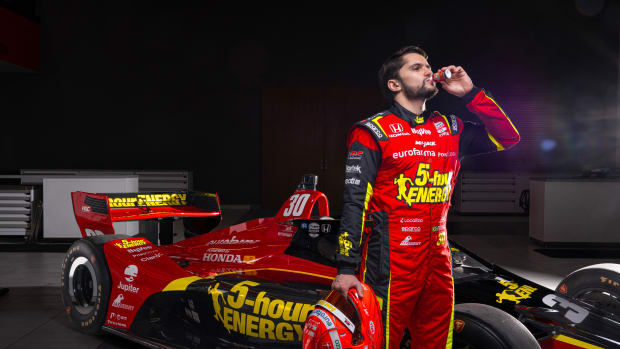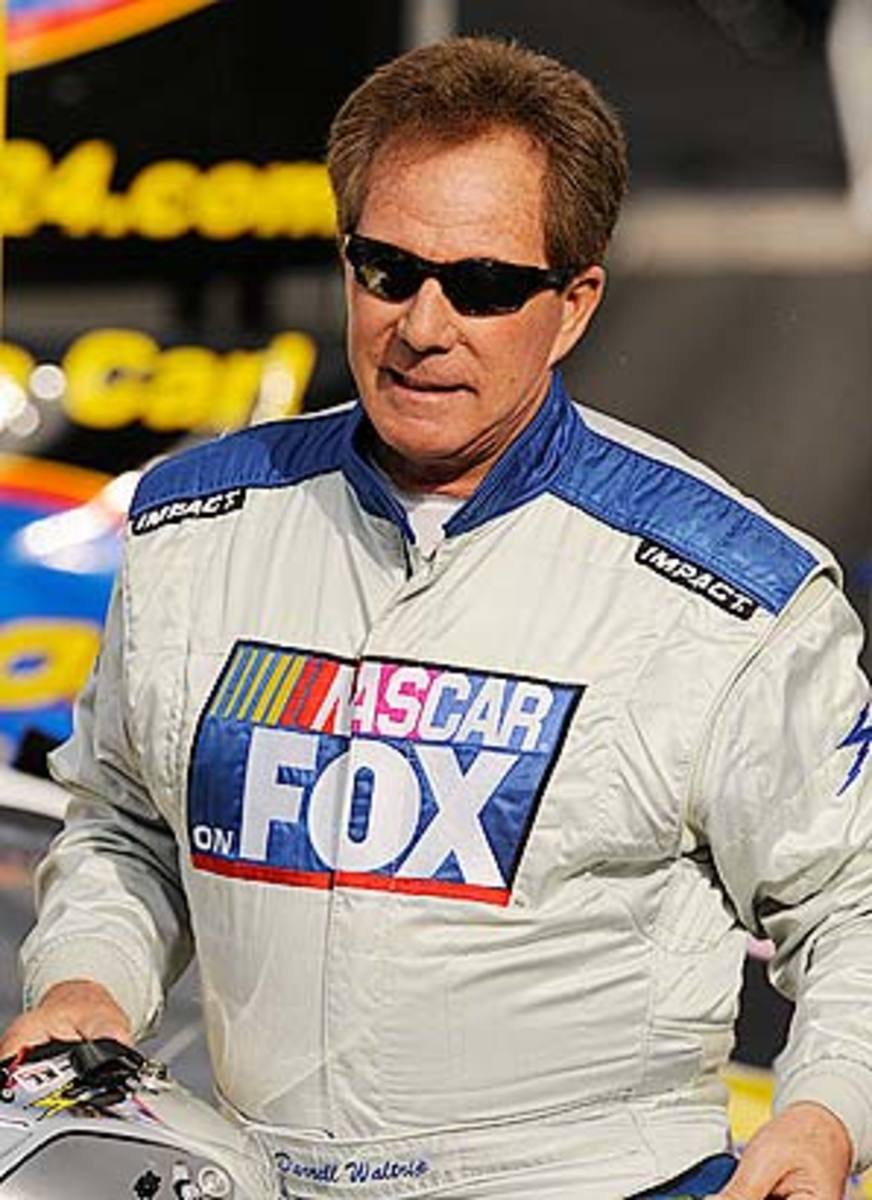
First Hall of Fame class nominee list sparks debate among drivers
It's even made a proud man humble.
Darrell Waltrip, a three-time series champion whose 84 wins is fourth-best all-time, is always likely to give his talents and statistics the benefit of the doubt, but concedes he will have to be satisfied -- at best -- with being a second-ballot Hall of Famer. There're too many foundation pieces to lay, he said, to pack into an initial five-man induction.
"I wish they would have done five, maybe done five categories, where you have five drivers, five promoters, five whatevers," Waltrip said Friday at Daytona International Speedway. "They've got this great big building and they're going to have five people they induct first time in.
"That's selfish on my part. I'm pretty sure I'm not going to get in on the first round. [I have] a decent shot of getting in on the second round, but that's not important. The important thing is you're in eventually."
But it's the question of who is getting in the inaugural class that has everyone guessing.
The late "Big" Bill France Sr. would seemingly be a mortal lock. His son and namesake is deserving as the man who took his father's creation from regional craze to national phenomenon. It will be interesting to see if the voting committee fills 40 percent of the first class with members of the same family.
Outside of the France family, Richard Petty, the sport's all-time wins leader (200) and a winner of a co-best seven titles is sure to be enshrined by a panel of industry insiders and media.
The late Dale Earnhardt, the sport's most popular driver, arguably ever, a winner of seven titles, also feels like a natural fit.
Then it gets interesting.
Bobby Allison's 85 wins are third-best all-time and he won a championship in 1983.
Aside from his statistics, Waltrip is and one of the sport's enduring personalities, inspiring both warmth and venom from fans.
"People loved me and hated me the same time," Waltrip added. "Kind of like they did Dale."
Glen Wood and his family's team, one of the sport's originals, were pioneers in using pit stops to tactical advantage and fielded cars for almost every legendary driver to step through the garage.
Richard Childress, a former driver, won six championships as Earnhardt's car owner, and therefore is a compelling candidate. An Earnhardt package deal would make for a nostalgic day, but statistically speaking, Rick Hendrick already has eight titles -- including three consecutively with Jimmie Johnson -- and his engine program has become one of the spines of the sport.
David Pearson's 105 wins is second-best in series history and only three drivers have won more than his three championships. He is a tough, leathery SOB who, at 74,, is still no one to mess with, and he and Petty could go through the grand entrance of the hall bangin'. His induction speech would be worth the price of admission.
Junior Johnson is considered a tangible link from stock car racing's birth in the moonshine trade to its grand introduction as a major spectator sport. Johnson is a mythical character: He raced on the beach at Daytona and "discovered" the draft at Daytona International Speedway. He won 59 races, but is 10th on the all-time list and never won a championship.
Cale Yarborough was ano-nonsense charger who won 83 races and was the first to win three straight titles, becoming one of the sport's most popular and recognizable figures. Yarborough began driving in a day when money was scarce for drivers, and a can of beans passed for dinner. A racer, a farmer, he would make a nice piece of foundation in a hall built for fans who get their hands dirty.
At 37, Jeff Gordon is still a bit in the moment to have given his eventual induction much thought. But the four-time series champion said he'd want the person who inducts him to "be somebody who I respect, who knows me more than just my stats on the racetrack."
Though disparate halls of fame are scattered throughout the country, Gordon, as a 19-year-old making his Nationwide debut in 1990, never had a major-league shrine to aspire to -- until now. The realization of one next spring coincides not only with the sport's rise to national prominence, but also Gordon's, and his eventual inclusion will likely signal the first wave of the current era.
"The sport has grown to a level of professionalism and recognition that it's up there with other great sports," he said. "If you've been successful and you are in a position to be recognized, then you want it to be something that you'd be proud to be a part of, and that's what they've created."
The selection process was not without notable exclusions, if not controversy, which is to be expected when a committee has to compress 60 years of contribution into 25 slots. Among those not yet nominated were legendary crew chief Smokey Yunick, whose to-the-border-and-beyond revolutionized competition, and Dale Inman, who won seven titles with Petty and one with Terry Labonte.
The yearly classes will be selected by a panel of NASCAR "industry leaders," manufacturer executives, former competitors, media and fans. Drivers must have competed for 10 years and be retired at least three. Non-drivers do not need to be retired.
A 20-member industry panel selects the 25 nominees each season, which is winnowed to five by a 47-member committee of media, manufacturers, three retired drivers, three retired owners, three retired crews chiefs and a fan vote.
That's a lot of process when scores of contributors -- drivers, mechanics, owners, promoters -- from 60 years of NASCAR await the long line into the hall.
For Waltrip, eventual induction will be worth the wait. That doesn't mean he's going to be patient.
"I am probably in 20 hall of fames, but this is the one," he said. "This is the one I was always hoping we'd have, the official NASCAR hall of fame."
That doesn't mean he's going to be patient about it.
